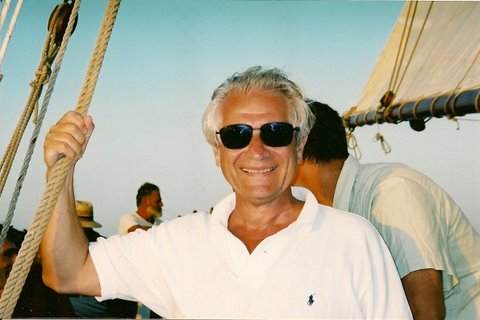Professor of Physics at the Departments of Astronomy and Physics

Dennis Papadopoulos holds a joint appointment at the Departments of Physics and Astronomy in University of Maryland, College Park. During the period 1969-1979 he served as senior scientist and division consultant at the Plasma Physics Division of the Naval Research Laboratory. Many of his major research accomplishments are related to directing interdisciplinary, critical mass efforts that included state of the art computing to address space physics issues. During 1969 to 1979, while at NRL he originated the concept of multifluid codes with self-consistent anomalous transport. These codes provided the capability to simulate the ionospheric effects of high altitude nuclear weapon explosions. Between 1980-1986 as P.I. of NASA's STTP program, he directed the University of Maryland effort that using "hybrid codes" resolved the key physics issues of the earth's collisionless shock and of high Mach number shocks in general. During the period 1990-2003, he was the P.I. for theory and modeling in the ISTP mission, a mission that involved more than 12 satellites. He was instrumental in conceiving and promoting the HAARP ionospheric heating facility located in Alaska. The facility was completed in 2003 and received DARPA award as the most innovative project of the year. He is currently P.I. of the Multi-University Research Initiative on the "Fundamental Physics Issues on Radiation Belt Dynamics and Remediation", a $ 7.5 M program that involves theory and modeling, laboratory and space experiments.
In his personal research he has